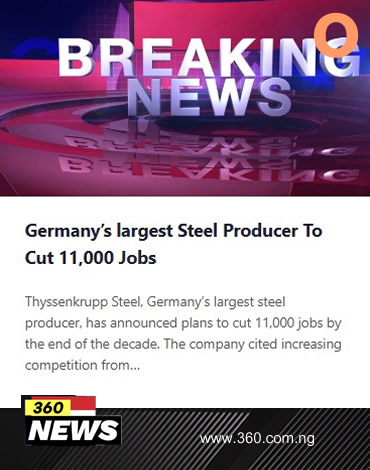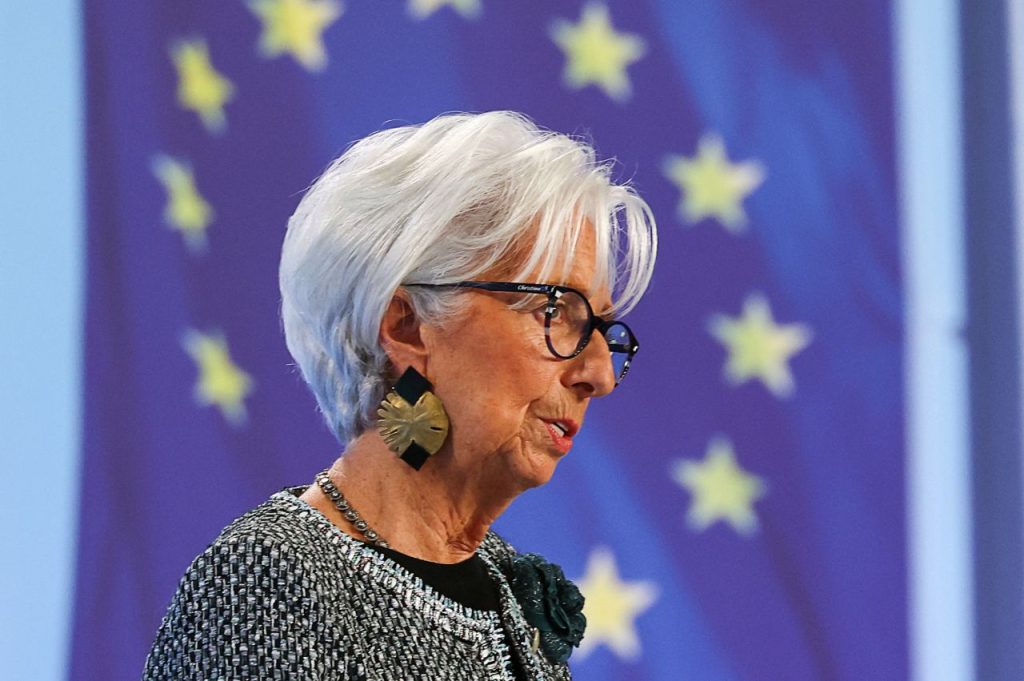Germany’s largest Steel Producer To Cut 11,000 Jobs

Thyssenkrupp Steel, Germany’s largest steel producer, has announced plans to cut 11,000 jobs by the end of the decade. The company cited increasing competition from Chinese rivals, high labor costs, and elevated energy costs as reasons for the move.
The job cuts are part of a larger restructuring effort aimed at improving the company’s competitiveness. Thyssenkrupp Steel plans to reduce production and streamline its administration, resulting in the elimination of around 5,000 roles. An additional 6,000 jobs will be transferred to external service providers or shed through the sale of business units.
The news is the latest blow to Germany’s economy, which has been struggling with high energy costs, steep labor costs, and intense competition from Chinese rivals. The country’s economy shrank last year for the first time since the onset of the Covid-19 pandemic, and it is expected to contract again this year.
Thyssenkrupp Steel’s announcement follows a similar move by Volkswagen, Germany’s largest manufacturer, which plans to reduce employee pay by 10% to protect jobs and safeguard the company’s future. Volkswagen also plans to close at least three factories in Germany and lay off tens of thousands of staff.
The struggles faced by Thyssenkrupp Steel and Volkswagen reflect a broader trend in Germany’s manufacturing sector, which is facing significant challenges in the wake of the Covid-19 pandemic and the ongoing conflict in Ukraine. The sector is also dealing with the impact of climate change and the need to transition to more sustainable practices.
Germany’s manufacturing sector is a significant contributor to the country’s economy, accounting for around 20% of GDP. However, the sector has been facing increasing pressure in recent years, driven by a combination of factors including globalization, technological change, and shifting consumer demand.
The job cuts announced by Thyssenkrupp Steel and Volkswagen are likely to have a significant impact on the German economy, particularly in regions where the companies have a significant presence. The German government has announced plans to provide support to workers who lose their jobs, including training programs and financial assistance.
However, some experts have warned that the job cuts could have a broader impact on the German economy, particularly if they are not offset by the creation of new jobs in other sectors. The German government has announced plans to invest in industries such as renewable energy and electric vehicles, which could potentially create new job opportunities.
Picture News







